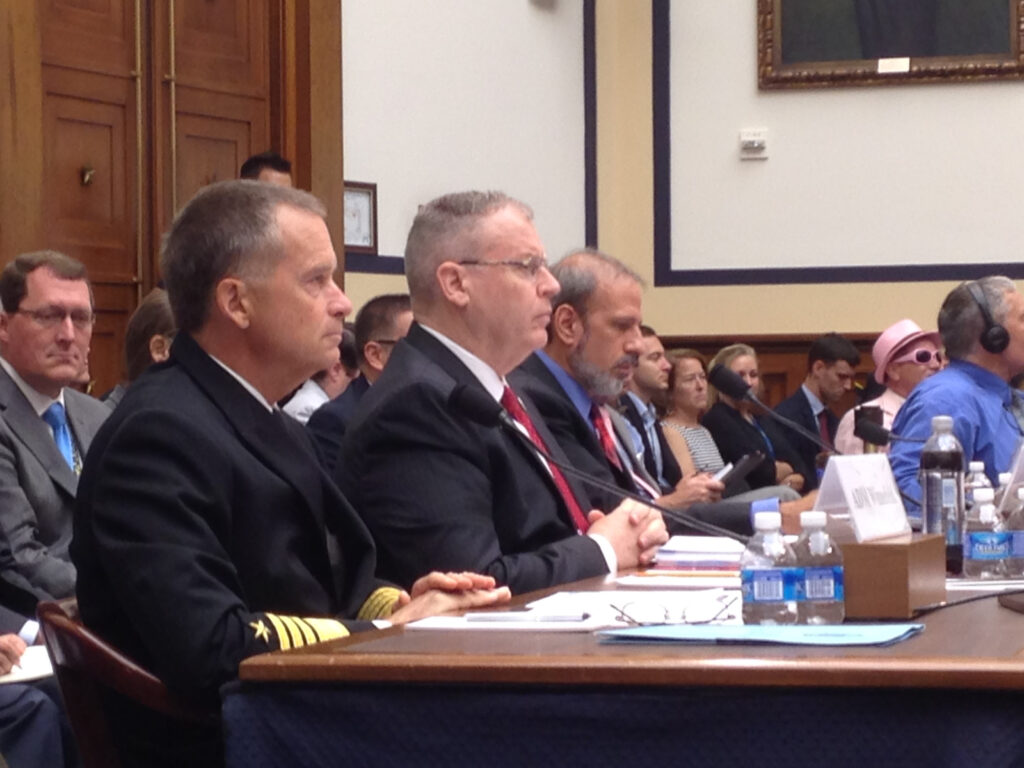MENA Week in Review - July 18, 2014
This week Congress discussed President Obama’s $5 billion Counterterrorism Partnership Fund, the conflict between Israel and Hamas militants in Gaza intensified, and the U.S. signed an $11 billion defense contract with Qatar. Read these stories and more below.
-
This week, Congress held hearings on the Fiscal Year 2015 Overseas Contingency Operation (OCO) budget, the supplemental provision that acts as a war fund outside of the base defense budget:
-
Rep. Rob Wittman (R-VA) commented on Tuesday that he “would like to see all the OCO moved back into the baseline budget.”
-
During a House Armed Services Committee hearing on Wednesday, President Obama’s new Counterterrorism Partnership Fund was scrutinized on both sides of the aisle. Rep. Buck McKeon (R-CA) noted that the new fund “lacks detail and is too broad in scope” while Rep. Adam Smith (D-WA) added that while “most members of Congress are broadly supportive of building the capacity of our international partners,” he was concerned because the fund “can fairly be described as unconstrained.” Deputy Defense Secretary Robert Work tried to allay fears by stating that “checks and balances” would be put into place.
-
 At Wednesday’s OCO budget hearing, more details about how the Obama administration intends to aid moderate, vetted elements of the Syrian opposition were released. $500 million will go towards a carefully selected group of vetted Syrian opposition forces, while another $500 million will support Syria’s neighbors--Jordan, Lebanon, Turkey and Iraq.
At Wednesday’s OCO budget hearing, more details about how the Obama administration intends to aid moderate, vetted elements of the Syrian opposition were released. $500 million will go towards a carefully selected group of vetted Syrian opposition forces, while another $500 million will support Syria’s neighbors--Jordan, Lebanon, Turkey and Iraq. -
The U.S. signed an $11 billion defense agreement with Qatar. This agreement will include the sale of Apache helicopters and Patriot and Javelin air-defense systems to the Gulf country.
-
Civilians in Gaza are fleeing their homes as the conflict with Israel continues to intensify. Civilians have been urged to evacuate by Israel Defense Forces, after it launched ground operations on Sunday to eliminate rocket-launching sites in Hamas-controlled areas of Gaza. Israel Defense Forces continued to expand its operations on Thursday, with the objective of eliminating tunnels the Israeli government believes are enabling Hamas militants to launch attacks in Israel. The new offensive has left 20 Palestinians and an Israeli soldier dead. Several attempts have been made to initiate a ceasefire between the Israel Defense Forces and Hamas militants in Gaza, including an Egyptian-brokered deal and a “UN-brokered humanitarian truce.”
-
This week, Israel’s famous Iron Dome anti-missile defense system saw its funding doubled to $351 million in the defense spending bill approved by the Senate Appropriations defense subcommittee. Sen. Dick Durbin (D-IL) welcomed the funding increase, saying Iron Dome “intercept[s] rockets with amazing accuracy that are being fired indiscriminately by Hamas into Israel.” While the Iron Dome system has been praised for preventing Israeli fatalities, MIT researchers have cast doubt on Iron Dome’s success in detonating the missiles’ warhead component.
-
Rocket fire has also been reported launched from Lebanon into Israel. No responsibility has been claimed and no casualties have been reported. Regardless, al-Monitor reports that this isolated incident has become a source of political embarrassment for Lebanon and Hezbollah.
-
Competing militias fought for control over the Libyan airport this week, severely damaging airport facilities.
-
High levels of violence continued in Iraq this week when a raid on an apartment complex in Baghdad by Iraqi militants left 26 individuals dead, the majority of which were women, and fighting between rival Sunni insurgents resulted in the execution of 12 men north of Baghdad.
-
In a political breakthrough, Salim al-Jubouri, a moderate Sunni Islamist, was elected speaker of the Iraqi parliament. Al-Jubouri, was a law professor at the University of Mesopotamia and serves on a human rights committee in the Iraqi parliament.
-
U.S. advisors sent to Iraq after insurgents advanced on several northern Iraqi cities last month, have sent initial assessments to the Pentagon, to understand the decline in Iraqi Security Force capabilities since the 2011 U.S. withdrawal. Details of these assessments have not been made public.
-
According to a recent report by McClatchy, Shi’a militias which the Iraqi government has been relying on to contain the spreading insurgency are “ill-equipped” to deal with the Islamic State’s campaign to regain power over large swaths of territory.
-
Fears are rising that the growing humanitarian spillover from Syrian crisis will exacerbate sectarian tensions in Lebanon. Since 2011, approximately 1.1 million Syrians have sought refuge in Lebanon, creating a burden on limited resources, particularly water.
-
Concerns have been raised that Yemeni bomb makers are active in Syria and are cooperating with militant components of the Syrian opposition.
- As Islamic State of Iraq and as-Sham [ISIS] militants have consolidated power in the eastern, oil-rich Syrian province Deir ez-Zour, a small opposition to ISIS has emerged there. Deir ez-Zour is a strategically important province for ISIS, who recently took control over a large oil field there.
- Al-Qaeda militants launched an attack on a military checkpoint in Tunisia, killing 14 soldiers. In recent years the Tunisia-Algeria border has become a safe haven for al-Qaeda-affiliated militants.
